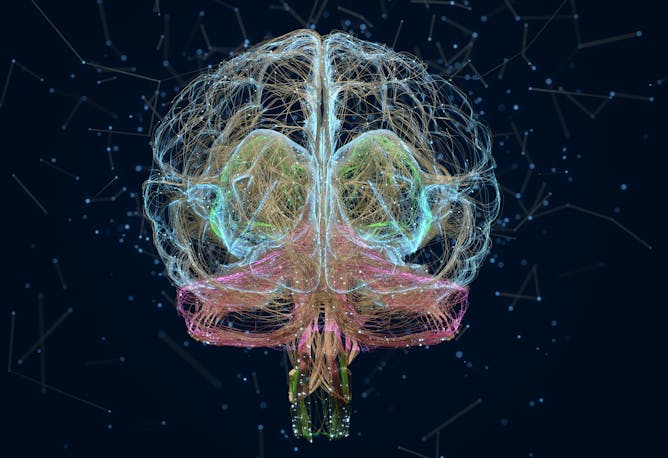|
|
|
|
Top headlines
Lead story
When it comes to zany, that’ll-be-the-day visions of the future, putting a computer in someone’s brain used to be right up there with flying cars.
Not so much anymore. Several groups are testing various types of “brain-computer interface” devices, and Elon Musk’s company, Neuralink, is likely the most high-profile.
Like most anything the billionaire does, Neuralink’s brain implant trial has raised some eyebrows. Devices that aim to help paralyzed people do more tasks on their own, as Neuralink’s does, have the potential to dramatically boost someone’s quality of life. But they also raise a whole host of ethical issues, and we asked two scholars at the University of Washington to weigh in: bioethicist Nancy Jecker and neurosurgeon Andrew Ko.
Part of critics’ concerns, they point out, are about the ethics of science itself. It’s important that researchers can learn from each other’s failures, not just their successes, yet Neuralink has shared little information about its current trial. And it’s not just Neuralink, they explain: Musk’s company embodies the private equity model increasingly common in science and health.
On a lighter note, here’s a Valentine’s Day treat: We’ll be sending you a special newsletter later today with our favorite stories about love’s many meanings and forms.
[ Science from the scientists themselves. Sign up for our weekly science email newsletter. ]
|

|
Molly Jackson
Religion and Ethics Editor
|
|

Brain-computer interfaces have the potential to transform some people’s lives, but they raise a host of ethical issues, too.
Andriy Onufriyenko/Moment via Getty Images
Nancy S. Jecker, University of Washington; Andrew Ko, University of Washington
Brain-computer interface devices have the potential to boost users’ autonomy, especially for people who experience paralysis. But that comes with risks, as well.
|
Science + Technology
|
-
Madhur Behl, University of Virginia
Artificial intelligence systems that can handle the pressure of high-speed auto racing could lead to driverless vehicles that can safely manage the morning commute.
-
Tianyu Wang, Georgia Institute of Technology; Christopher Pierce, Georgia Institute of Technology
Robots often have a hard time navigating through debris, but robots designed based on worms and snakes could move around obstacles faster, thanks to an idea called mechanical intelligence.
|
|
Economy + Business
|
-
Michael Mattioli, Indiana University
Most people don’t know what these labels really mean − and advertisers take advantage of that fact.
-
Rachel J.C. Fu, University of Florida
With big events drawing a growing share of of tourism dollars, F1 offers a potential glimpse of the travel industry’s future.
-
Jessica Lasky-Fink, Harvard Kennedy School; Elizabeth Linos, Harvard Kennedy School
The stigma around poverty and government benefits can make those initiatives less effective.
-
Ramya Vijaya, Stockton University
Despite widespread fears about immigrants being a burden, even those arriving as asylum applicants are more likely to work than the US-born population.
|
|
Politics + Society
|
-
Claire Leavitt, Smith College
With its impeachment of Homeland Security Secretary Alejandro Mayorkas, the House exercised its oversight power. How can you tell if it was it a legitimate use of that power?
-
Christopher Devine, University of Dayton
Media coverage of vice presidential candidates tends to focus on who can help win the election rather than who is qualified to help govern once in office.
-
Ronald E. Hall, Michigan State University
Conservative politicians have launched attacks against the use of the word “woke.” If they knew the history of the word, they might stop wasting their time.
|
|
Health + Medicine
|
-
Jacob Pellinen, University of Colorado Anschutz Medical Campus
What you don’t do: Don’t shout at them, don’t put things in their mouth and don’t let them get near things that are sharp or hard in case of a fall.
|
|
Environment + Energy
|
-
Andrea l. DiGiorgio, Princeton University
The caption may say that only scientists and trained professionals should handle wild animals, but viewers remember the image, not the words.
|
|
International
|
-
Wycliffe W. Njororai Simiyu, Stephen F. Austin State University
His sudden death at 24 has shone a light on what a talent and hard worker he was, and what he represented.
|
|
|
|
|
|
| |
| |
| |
| |
|
|
|
|
|
|
|